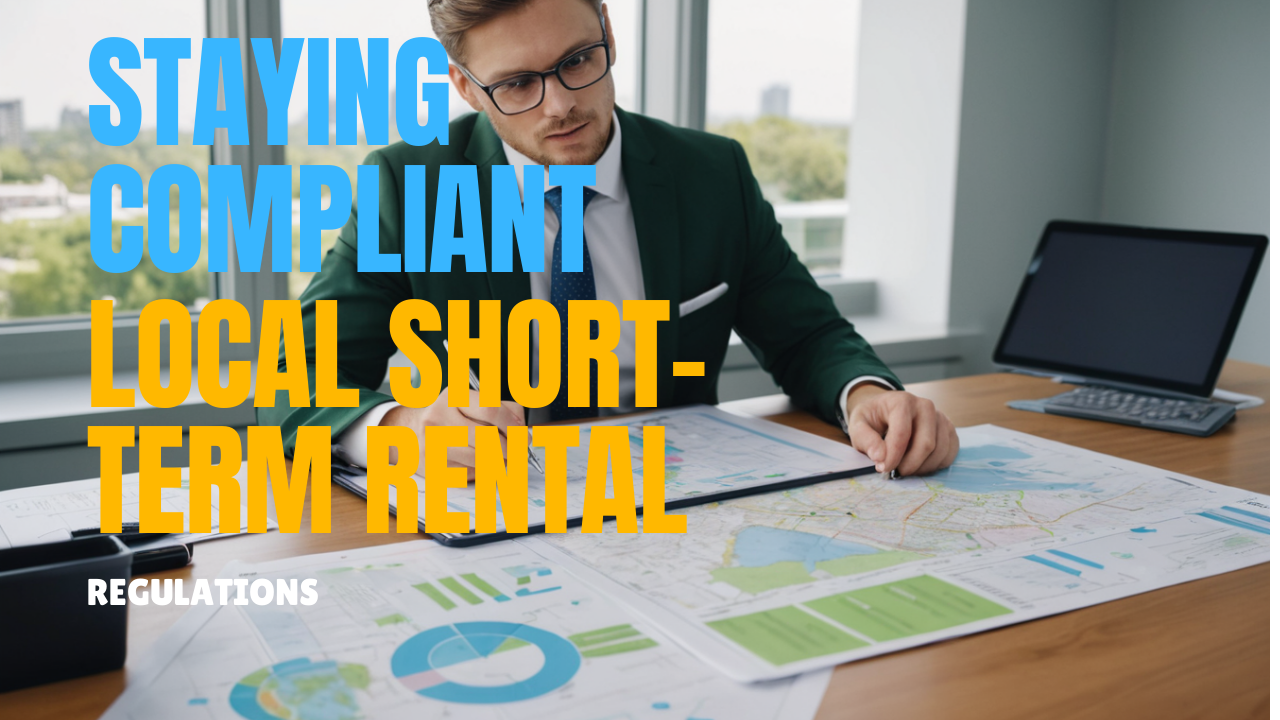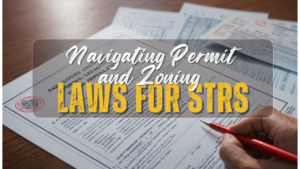Exercitation ullamco laboris nis aliquip sed conseqrure dolorn repreh deris ptate velit ecepteur duis.
Staying Compliant with Short-Term Rental Regulations
-
Vestio Capital > Education > Investing in Vacation Rentals > Staying Compliant with Short-Term Rental Regulations

As short-term rentals (STRs) grow in popularity, so does the focus on regulatory compliance. Understanding and following local zoning and permit laws isn’t just a legal requirement—it’s vital for the sustainability of your business and for maintaining good standing within the community. Here’s a guide to help you navigate local STR regulations and avoid the pitfalls of non-compliance.
Understanding Local Short-Term Rental Regulations
Regulations for short-term rentals vary widely based on local factors like tourism, housing needs, and community standards. Before listing your property, it’s essential to understand the specific regulations in your area, which may include:
- Zoning Laws: Some regions limit STRs to certain zones or property types.
- Permit Requirements: Many areas require hosts to obtain permits or licenses before renting out their properties.
- Occupancy Limits: Local rules may restrict the number of guests allowed in an STR.
- Safety Standards: Compliance with health and safety codes, including fire and building safety, is often required.
Steps to Ensure Compliance
Research Local Regulations
Start by researching specific STR regulations for your city or county. Local government websites, housing authorities, or STR host groups can provide resources and updates to guide you.Obtain Required Permits
If your area requires permits, secure them before listing your property. Permits may include inspections to verify safety standards. Failing to obtain permits can lead to fines or removal from STR platforms.Follow Zoning Restrictions
Verify your property’s zoning classification. If STRs are restricted in your area, you may need to find an alternative property or adjust your rental strategy to remain compliant.Maintain Documentation
Keep thorough records of permits, licenses, and communications with local authorities. These records can be valuable if disputes or audits arise.Stay Informed
Regulations can change, so it’s important to stay up-to-date. Join STR host groups or subscribe to local news for the latest information on regulatory changes.Consult with Experts
If local regulations seem complex, consider consulting with a legal expert or property management company specializing in STR compliance. They can offer tailored guidance to keep you on track.
Risks of Ignoring Local STR Regulations
Neglecting compliance with local STR regulations can have severe consequences:
Fines and Penalties
Non-compliance can lead to heavy fines, which may accumulate and cut into your profits.Legal Consequences
Ignoring zoning and permit requirements can result in legal action, including eviction or lawsuits from local authorities.Loss of Business
Non-compliance may lead to your listing being removed from major STR platforms, reducing your income opportunities.Reputation Damage
Failing to follow local laws can damage your reputation in the community and among guests, potentially lowering future bookings.Insurance Issues
Operating illegally can result in insurance claim denials for incidents on your property, leaving you financially at risk.
Conclusion
Compliance with local short-term rental regulations is key to protecting your business and ensuring a positive hosting experience. By understanding and following local laws, securing necessary permits, and respecting zoning regulations, you can build a sustainable STR business. Ignoring these requirements carries significant risks, from financial loss to reputation damage. Prioritizing compliance protects your investment and supports the overall well-being of your community.

